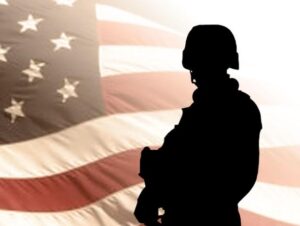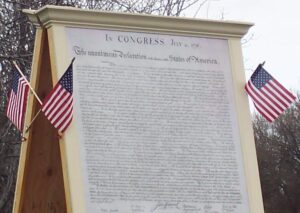I found this article today… it’s worth reading. It’s two years old, I realize, but history is still history even if it’s personal history.
USNews and World Report
An Open Mind For A New Army
By Julian E. Barnes10/31/05
I have an image of David Petraeus burned in my mind. It was just days after Baghdad had fallen to American forces, and Petraeus, the commander of the 101st Airborne Division, had joined other leaders of the division at a memorial service for two soldiers who had just been killed.
Before the service, I had overheard the battalion sergeant major reprimand a noncommissioned officer who had been shaken deeply by the deaths. His face was reddened with emotion, and that reaction, the sergeant major told him, was unacceptable. “Your soldiers need to see a stone face,” the major told the NCO. Emotion is distracting; safety depends on soldiers staying focused on their jobs. Still, it seemed an inhuman command.
The exchange was still playing through my mind as my eyes scanned the seats at the service and found Petraeus. He wore the stone face; even in this tragic moment, he exuded calm and control. Yet the sadness, too, was unmistakable. It was clear in the way his eyes wrinkled at the corners and his mouth tugged downward. This was not the pure stoicism of the sergeant major. Here, I thought, was a man who knew leaders must inspire confidence but who also knew that human feelings cannot be denied.
It’s exactly this sort of paradox that animates the work and leadership of Lt. Gen. David Petraeus, the American commander who for the past 15 months led the training of the new Iraqi security forces. Petraeus is one of the most fascinating people in the United States Army. With a Ph.D. from Princeton University, he is often referred to as the military’s warrior-scholar. He has drawn deeply from his dual backgrounds to create a leadership style that is at once of a piece with military tradition, yet is at the same time innovative.
The armed services are among the few institutions in this country that focus relentlessly on developing leaders and improving leadership. The military’s fiercely hierarchical structure is designed to identify the best leaders at each level and push them upward. Officers are expected to mentor those below them, and soldiers must periodically return to school to study how to better lead.
Smarter soldiers. In his 27 months in Iraq, Petraeus has been asked to lead a division into battle, to oversee the reconstruction and governance of Iraq’s third-largest city, and to build up, from virtually nothing, Iraq’s Army and police force. As Petraeus’s varied roles show, Iraq has deeply challenged the soldiers who serve there, sometimes forcing them to perform duties far different from those they trained for. As a result, the Army has come to believe that teaching its soldiers how to think is as important as teaching them how to fight. “There is a very clear recognition of the importance of fostering flexibility and adaptability in leaders,” says Petraeus.
Petraeus has been at the forefront of this evolution in thinking; indeed, there are few more flexible leaders in the military today. The general credits the Army’s field training for teaching him to be a creative commander. But his adaptive thinking also comes from his work outside the military. At Princeton, where he earned his advanced degree in international relations, he had a chance to interact with exceptional scholars, many of whom had a very different view of the world and of human nature. The resulting debates provided insights and lessons that could be applied to the modern battlefield. “The truth is not found in any one school of thought, and arguably it’s found in discussion among them,” he says. “This is a flexibility of mind that really helps you when you are in ambiguous, tough situations.”





